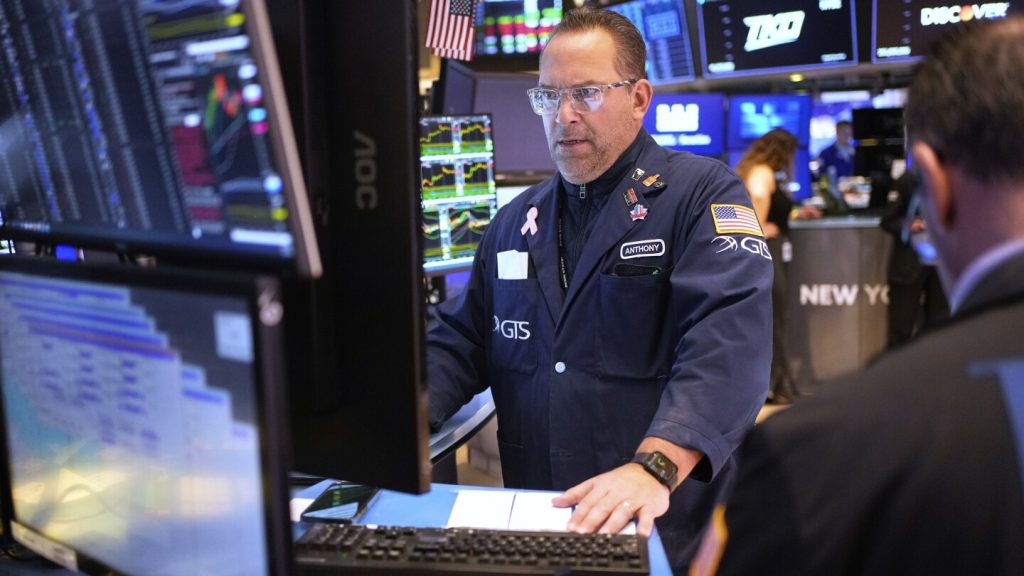U.S. Stocks Bounce Back from Weak Start
U.S. stock markets recovered from an early downturn to close slightly higher, finally breaking a four-week streak of declines. The S&P 500 increased by 0.1% on Friday, despite having been in the red for most of the day. The Dow Jones Industrial Average also rose by 0.1%, while the Nasdaq composite saw a 0.5% uptick. Recent weeks have seen stocks under pressure due to concerns about the U.S. economic outlook, with a trade conflict between the U.S. and its major trading partners posing risks of rising inflation that could adversely affect both consumers and businesses.
Mixed Afternoon Trading
During Friday’s afternoon trading session, stocks initially dipped, but losses softened enough to offer Wall Street hope of ending a four-week slump. The S&P 500 fell by 0.2%, maintaining a weekly gain of 0.2% that could help end the losing streak. The Dow Jones saw a drop of 37 points (0.1%), contrasted by a slight rise of 0.1% in the Nasdaq composite.
Technology Sector Struggles
The technology sector faced significant challenges, contributing prominently to the market’s recent downturn after a year of strong performance. High-value tech stocks can greatly influence market trends, and among those seeing declines were Nvidia, down 1.2%, and Micron Technology, which plummeted 7.6% — marking the largest fall among the S&P 500 stocks.
Concerns Over Economic Direction
Uncertainties surrounding the U.S. economy have led to consistent stock losses. The ongoing trade war may exacerbate inflation, negatively impacting consumers and businesses alike. Inflation remains stubbornly above the Federal Reserve’s target of 2%, and the imposition of tariffs could hinder efforts to curb it.
Mixed Corporate Earnings Warnings
Corporate warnings regarding tariffs, inflation, and rising cost uncertainties have rattled investors. Nike shares fell 5.8% following a bleak revenue forecast due to geopolitical factors, while FedEx tumbled 6.5% after projecting stagnant revenue growth. Homebuilder Lennar also saw a decline of 4.1% after providing a disappointing quarter-end forecast, highlighting the adverse effects of high interest rates on the housing market.
Stability in Treasury Yields
In the bond market, Treasury yields held steady, with the yield on the 10-year Treasury rising slightly from 4.23% to 4.25%. Meanwhile, airlines faced pressure following a fire that disrupted operations at London’s Heathrow Airport, affecting global travel for many. Shares in various U.S. airlines showed mixed results, with American Airlines remaining unchanged while United Airlines rose 0.7% and Delta Air Lines fell 0.3%.
International Market Performance
European markets experienced declines, with Britain’s FTSE 100 dropping by 0.6% after the Bank of England opted to maintain its main interest rate. Additionally, Germany’s DAX lost 0.5% amid a new budget proposal aimed at increasing defense and infrastructure spending.



